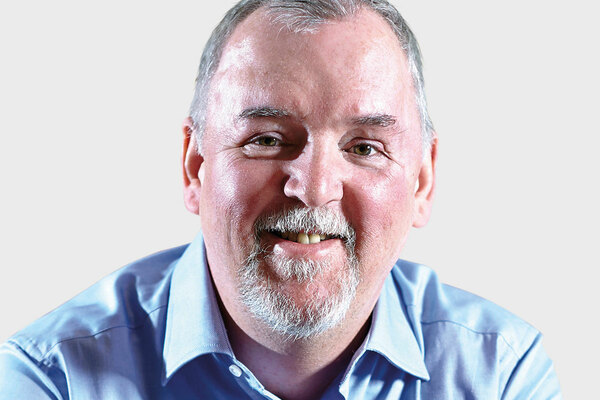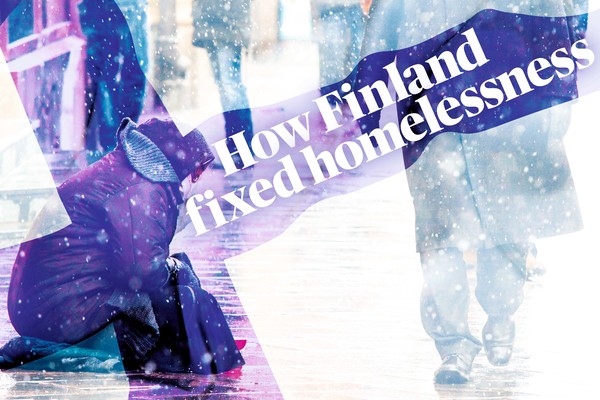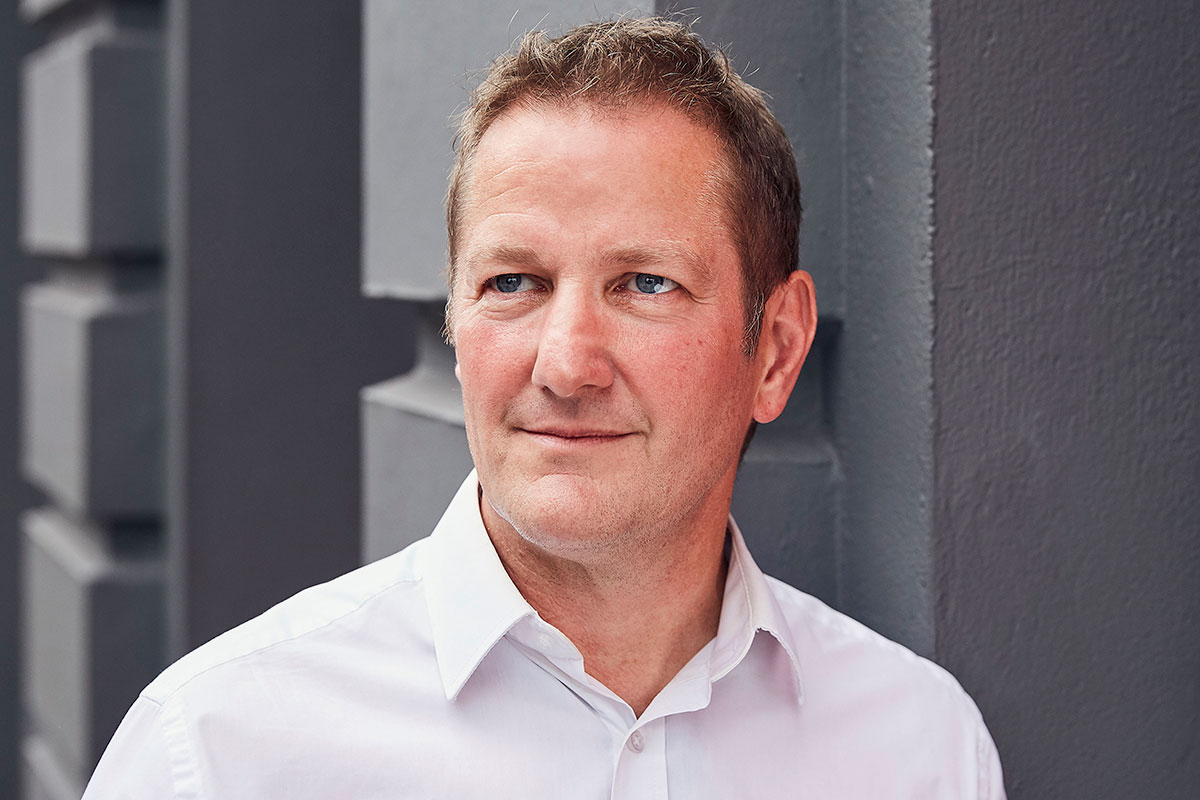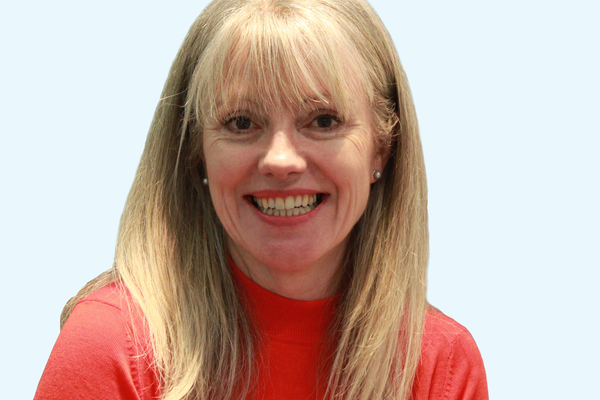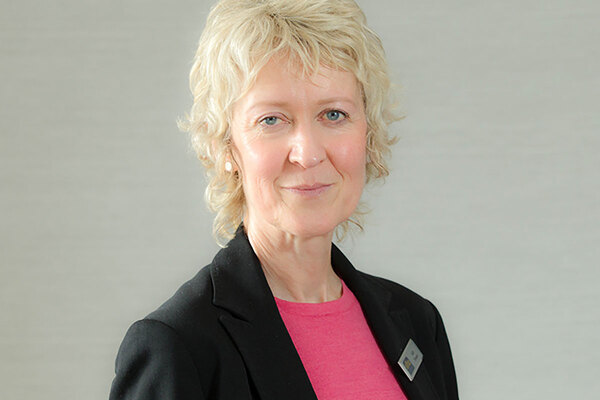Crisis chief: ‘The fact we’re still here is an embarrassment’
Jon Sparkes at Crisis tells Lucie Heath why the charity didn’t celebrate its 50th anniversary and why he is still optimistic that the rough sleeping epidemic can be stopped. Photography by Tom Campbell
Sitting on the wall of Jon Sparkes’ office is a small-framed picture of a group of people holding a map of London. The photo is of the founders of Crisis, explains the homelessness charity’s current chief executive. The map shows the founders plotting candlelight vigils across London to raise money for organisations working on the city’s growing homelessness problem. The picture was taken in 1967.
Now, more than 50 years later, Crisis has become one of the most recognisable charities in the country – but there was little fanfare to mark the milestone.
“We’re not something you can celebrate; we’re not celebrating our 50th anniversary,” Mr Sparkes tells Inside Housing. “The fact that we’re still here is an embarrassment – not just to Crisis but to Britain, to our society – that we’ve chosen a direction that says charities like Crisis are still needed.”
Instead, to commemorate the end of the charity’s 50th year, in April last year, Crisis produced a 500-page report with one very ambitious aim: to end homelessness in Great Britain. A little over one year on, Inside Housing meets Mr Sparkes to find out if the country is any closer to achieving this goal.
We meet in Mr Sparkes’ office, which sits above one of Crisis’ homelessness centres in east London, near Liverpool Street. Mr Sparkes points out the City of London’s skyline jutting out over the 19th century buildings of Spitalfields. He likes how the view captures the multi-layered history of the capital.
It is fair to say that Mr Sparkes’ career hasn’t always been driven by a burning desire to end homelessness.
He began his working life in a series of HR roles in the private sector, before going on to become chief executive of disability charity Scope. Following Scope, he took up the role of chief operating officer at Unicef, where he learned about the importance of human rights. In 2014, he left Unicef for Crisis, where he has now been chief executive for five years.
Mr Sparkes admits he was guilty of stereotyping homelessness before taking up the role at Crisis. “What I’d seen of homelessness, of course, is what you see on the street,” he says.
“You hear people saying things like: ‘We’re all two pay packets away from homelessness.’ I learned very fast that’s just not true. The people who are nearest to homelessness are people who are vulnerable and aren’t having their rights upheld by society and law, not all of us.”
The most important thing he has learned since being at Crisis is “this sense that [homelessness] is not inevitable” and is instead a set of “political policies and choices”.
It was the charity’s focus on policy that attracted Mr Sparkes to the role. “Here’s a charity which is not just putting a sticking plaster on something,” he insists.
However, in the five years since Mr Sparkes joined Crisis, the country seems further away than ever from solving homelessness. Since 2014, the number of people rough sleeping in England has almost doubled, while the number of households in temporary accommodation is at its highest in over a decade.
In the face of these figures, it would be easy to feel defeated. Yet Mr Sparkes is a self-proclaimed optimist. “It can be done,” he affirms. “We just have to really want it to be done. We have to throw our political weight behind it.”
One thing Mr Sparkes would like to see is a “call to arms” across the social housing sector, a world he has learned a little about by sitting on the board of South Yorkshire Housing Association.
The role adds to an already busy itinerary for the chief executive, who lives in Cornwall, is based in London for work, and also spends two days a week in Wales working with the Welsh government.
But he says he took up the offer because he thinks there needs to be “a greater understanding of homelessness in the social housing world... and a greater understanding of housing in the homelessness world”.
There is a lot of “bad practice” in the sector, he adds. These include asking homeless people for deposits they cannot afford and allocations policies that house a “smaller and smaller proportion of homeless people”.
He understands the dilemma for social housing providers operating on tight budgets but doesn’t excuse them. He says: “Social housing is under a lot of pressure and if you haven’t got enough and you’re not able to build enough, then all of those problems are going to be more and more acute. But let’s start with remembering that housing associations – social housing – is there to stop people being homeless... If we haven’t got social housing to stop people being homeless then what have we got?”
Of course, eradicating homelessness would need policy commitments from national governments. This is a subject Mr Sparkes knows more about than most.
In 2017, he chaired the Scottish government’s Homelessness and Rough Sleeping Action Group, which aimed to create a plan to end rough sleeping and transform temporary accommodation. He later sat on the UK government’s Rough Sleeping Advisory Panel, which helped the government develop a strategy to end rough sleeping by 2027. This year he is chairing the Welsh government’s Homelessness Action Group, set up to help with its goal of ending homelessness completely in Wales.
“They’re doing the right things, they’re just not doing enough of the right things, not doing all of the right things”
When asked to compare his experiences with the UK and Scottish governments, Mr Sparkes chooses his words carefully. “I think the two start in different places,” he says. “The UK government’s Rough Sleeping Advisory Panel does what it says on the tin: it advises the government on its Rough Sleeping Strategy and it starts from a policy which is all about ending rough sleeping in 2027.” Mr Sparkes describes rough sleeping as “the most dangerous but one of the smallest elements of homelessness”.
In comparison, the Scottish group “set out with a plan to end homelessness”. So does Mr Sparkes believe this is really within sight north of the border? In short, the answer is yes. He says that the Homelessness and Rough Sleeping Action Group came up with “a comprehensive plan”, which if implemented in full, “would achieve what they are trying to achieve and end homelessness”.
“Some parts of the plan, it has to be said, depends on decisions made by the UK government,” he caveats. “They’ve acknowledged in Scotland you can’t end homelessness unless you tackle some of the issues over welfare, which they have less control over, but as long as they implement every element of the plan and do it at pace, they’re going to radically reduce homelessness, and if they can convince their counterparts in the UK government to tackle things like Local Housing Allowance, they could end homelessness in Scotland.”
Mr Sparkes is equally impressed with Welsh efforts. “The government’s ambition in Wales is very, very clear,” he says. “When you hear the housing minister talk about ideas like social housing not evicting people into homelessness, you know that there’s a vision there for really preventing homelessness as well as dealing with the initial emergency.”
Is this a vision the UK government is lacking? Mr Sparkes describes the government’s Rough Sleeping Strategy as “at best, not finished”.
He explains: “It’s difficult to argue that you shouldn’t focus on dealing with the emergency. If someone is on the street now, the most important thing is support to get off the street... but the frustration is you can keep doing that forever but unless you tackle the root causes, focus on prevention rather than cure, then the problems are just going to keep coming and coming and coming.
“So that’s my frustration: it’s not that they’re doing the wrong things. They’re doing the right things, they’re just not doing enough of the right things, not doing all of the right things.”
For example, he says that ending the freeze on Local Housing Allowance is an “absolutely necessary part of the solution” to end homelessness. Crisis recently released research that predicts restoring the rates to cover the cheapest third of private rents – the government’s policy before the benefit was frozen in 2016 – would prevent over 6,000 individuals and families from becoming homeless.
“Why on earth would we design a housing benefit system that doesn’t cover the cost of housing? Why would you do that?” Mr Sparkes asks.
Mr Sparkes is also not afraid of criticising his own sector. He says homelessness charities, including Crisis, are guilty of perpetuating certain narratives which focus on “individual men who have fallen on hard times” in their quest to raise funds.
“Social housing is there to stop people being homeless. If we haven’t got social housing to stop people being homeless then what have we got?”
He also addressed the scandal that erupted in 2017, when several homelessness charities – of which Crisis was not one – were revealed to be sharing information about rough sleepers with the Home Office. Did these revelations have a lasting impact on trust in the sector?
“If people have the perception that engaging with the service gets you fast-tracked out of the country then they’re going to disappear, they’re going to hide,” Mr Sparkes responds.
“Whatever happened in that situation, we have to make sure that that’s not the case. And not only that that’s not the case, that it’s not perceived to be the case and people know that if they are approaching people who can help them and deal with their homelessness that they are going to help them and deal with their homelessness and not get mixed up in their migration situation.”
However, if there was any bad blood between homelessness charities as a result of the scandal, Mr Sparkes is not going to admit it. In fact, he says all the leading charities are committed to working together to lobby and assist government with the aim of ending homelessness.
The current political climate is as uncertain as ever and a general election this year seems inevitable.
When asked what he would like to see in manifestos, Mr Sparkes says he would want parties to “commit to having a plan to end homelessness”, promising that “Crisis, Shelter, St Mungo’s, Homeless Link and Centrepoint” will be there to help politicians turn the pledge into reality.
“We know it’s possible, we know it can be done, we’ve written it down, we’re seeing governments in the UK doing it, so let’s have major political parties committing to end homelessness in this country.”
At a glance: Local Housing Allowance
Local Housing Allowance (LHA), introduced by the New Labour government of Gordon Brown in 2008, is used to determine housing benefit entitlement for people living in the private rented sector.
The LHA rate for an individual is based on a number of factors: the number of bedrooms deemed to be required by the claimant and the region in which they live (the broad rental market area).
Rates are set in line with the 30th percentile (ie the lowest 30% of rents) in the broad rental market area.
However, as part of government measures to cut benefit spending, LHA rates have been frozen since April 2016 until next year.
Charities have warned that this is exacerbating homelessness and reducing affordable housing options, particularly in areas of high rental increases as gaps between the frozen LHA rate and rents open.

